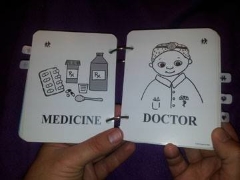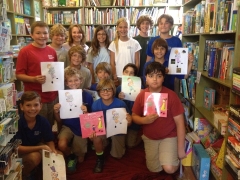This article originally appeared on MariaShriver.com in 2016 but was removed when they migrated their site to focus less on Alzheimer’s disease.
“Sooner or later, life will hand you a problem or situation that exceeds your capacity. When Alzheimer’s steps in, it invades every aspect of our lives.
It creates physical, emotional, social, financial, and spiritual ripples that are difficult to manage and are frequently changing,” Maryann Makekau of Hope Matters shared in a recent interview.
Maryann, like millions of other adult children, has found herself the main caregiver for her parents. Her parents are battling their own unique and complex health challenges.
You don’t have to look hard on the internet to find similar stories of lives that have been forever altered by Alzheimer’s or another type of dementia.
Each situation with its own unique set of challenges requires a specialized knowledge in order to succeed.
Rather than reading text books, untrained, family caregivers typically get their knowledge from others who have previously been in a similar situation.
Often, these experienced caregivers are paying it forward by sharing strategies and techniques they themselves have developed or implemented, based on someone else’s knowledge which was previously paid forward as well.
Paying it forward stems from a desire to help others avoid the same pitfalls and struggles one has experienced, so others may have a more positive experience.
Susan M. says, “Now that I have the knowledge and skills, I want to share what I know with others so their journey can be easier, less stressful, and more joyful than mine was.”
Finding strength when caring for someone, especially as Alzheimer’s advances, is no easy task. Caregivers are often overwhelmed with the responsibility that adds to their already busy life.
“All ANY caregiver wants is HELP! Help shouldn’t be so difficult! That’s why I set out on a mission to provide help to caregivers,” Barbara Worthington says.
Barbara, who has cared for multiple relatives with dementia, has first hand experience and “found out just how strongly communication is affected and how difficult and arduous it can make everyday interactions.”
 Inspired to help others overcome these barriers, Barbara created Caregiver Cards with a mission to provide help to caregivers of individuals with speech or memory disorders, by creating a low-cost, low-tech, effective, picture-based communication tool.
Inspired to help others overcome these barriers, Barbara created Caregiver Cards with a mission to provide help to caregivers of individuals with speech or memory disorders, by creating a low-cost, low-tech, effective, picture-based communication tool.
Providing help to other caregivers comes naturally for these three ladies, as well as thousands of others around the world who are paying it forward.
Sometimes they are touched when a family member is diagnosed with a terminal illness. Other times, such as Maryann’s situation, a close friend finds themselves battling a disease.
 Maryann, whose goal is “to magnify hope in people’s lives,” created a Little Pink Book for the 2nd graders in her friend’s classroom.
Maryann, whose goal is “to magnify hope in people’s lives,” created a Little Pink Book for the 2nd graders in her friend’s classroom.
“I wanted those children to feel helpful, not helpless. I wanted to teach them how to be a blessing in her journey of healing,” Maryann adds.
Finding the positive side of caring for someone with unique challenges such as Alzheimer’s, cancer, or autism can help that individual move from being a sufferer to being empowered to live positively.
“I know from experience that people with dementia and the people who care for them can find joy, healing, and happiness in the process,” Susan adds.
It’s not easy and it starts by you being ready to share your experiences and help when called upon.
By paying it forward and sharing your trials, tribulations, and successes as these three ladies are doing, you can help other caregivers have the strength to find happiness in caregiving.
Do you have any questions or thoughts? Let me know by commenting below:
If you like what you’ve read, why not receive periodic updates when you:
Subscribe to the TinT Newsletter





Leave a Reply